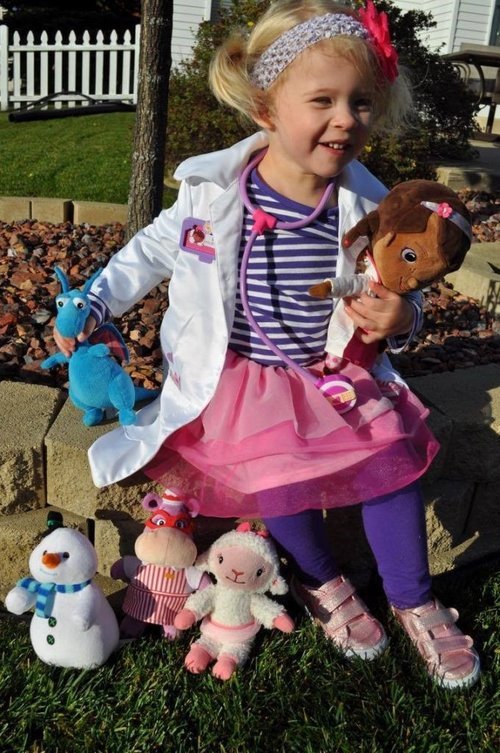Dear Doctor Mom...
You have the most honored educational award, you are “your child’s expert”. It is your job to advocate and ask questions for your child. This can be intimidating when sitting in a doctor or other professional’s office with certificates on the wall (remember, you have certificates also…they are the drawings you proudly hang on your fridge).
We want to share a few tips with you for when you bring your child to the doctor next appointment. Your pediatrician is there to help monitor your child’s health/growth, explain development, diagnose illnesses, explain treatment and refer you to specialists when needed.
1. Prepare for your visit.
Write down your questions/concerns, as you may forget even the most important ones you wanted to talk about when sitting in the examination room. Well-check appointments typically last 15 minutes. Make sure to prioritize your list and schedule a follow-up appointment if you haven’t discussed everything. The practice may have a patient portal on which you can email your questions to your pediatrician in advance.
Information is readily available to us on the internet. Make sure you are using reliable sources or you (and your doctor) could become overwhelmed. Again, they are the expert in health/wellness, listen to their opinions.
Take a video to show the doctor what your child may be doing at home that concerns you. Describing the specifics (when/where it occurs, what happened before/after, etc.) help the doctor to get a better picture of what you see.
It’s helpful to have all your information in one place. Your practice may have a patient portal, but it’s best to keep a folder with important information, such as immunization records, health issues and treatment, drug reactions, allergies, developmental milestones, etc.).
2. Appointment time.
Now this is hard, but, show up on time (even early). You will not feel as rushed and better able to focus on what the doctor is saying. Bring paper to take notes and it may be helpful to bring another person as a “second ear”. Also, keep focused, don’t ask questions about your other child(ren) and “sick visits” are not the time to talk about other concerns, make another appointment.
Your child may be afraid, do your best to comfort them. Your child is listening to what you are saying to the doctor, be respectful and include them when possible. Also, don’t cause more fear by saying to the doctor, “She doesn’t like when you look in her ears”. Rather support your child by telling them “The doctor is going to look in your ears.” Doc McStuffins has made doctors more friendly figures for kids. I have been known to sing the theme songs while in the doctor’s office to calm my child (I’m sure he’s heard it many times a day). Don’t threaten with the doctor, “We’re going to have to take you to the doctor and cut off that finger”. No wonder their job to win children over is so hard!
Ask for clarification if your doctor uses a term that you don’t understand. Respectfully ask, “Why?” if you don’t understand your doctor’s specific treatment recommendations. It’s your job to ask questions and advocate. Have you had a concern and your doctor says, “Let’s wait and see.”, but you don’t feel comfortable with that approach? You may be able to make a follow-up appointment with another doctor for a second opinion. You can also find services that might help your child’s development. Many places offer developmental screenings.
Developmental screenings are not evaluations, but a time to complete a questionnaire and have a provider observe and ask more questions about how your child plays, learns speaks, acts or moves. From this information, the provider figures out how to best help your child and may make recommendations for evaluations, activities you can do at home or other community resources you may be able to take advantage of. If your child is under 3 years of age, ask about Early Intervention services. You may also use your insurance for private services, although many policies are restricted to “medical necessity” (which means delay is caused by illness, injury or child was born with condition).
Pediatric Interactions offers FREE developmental screenings for children birth through age 8 (many providers in Lake County only screen until 3 years old). These appointments are FREE and occur in fun environment, where kids just feel like they are playing. Please contact us to schedule your appointment and receive developmental milestones and activities that you can do at home with your child.
Original post: As They Grow/Little Lake County, April 25, 2016 Sarah Rosten



